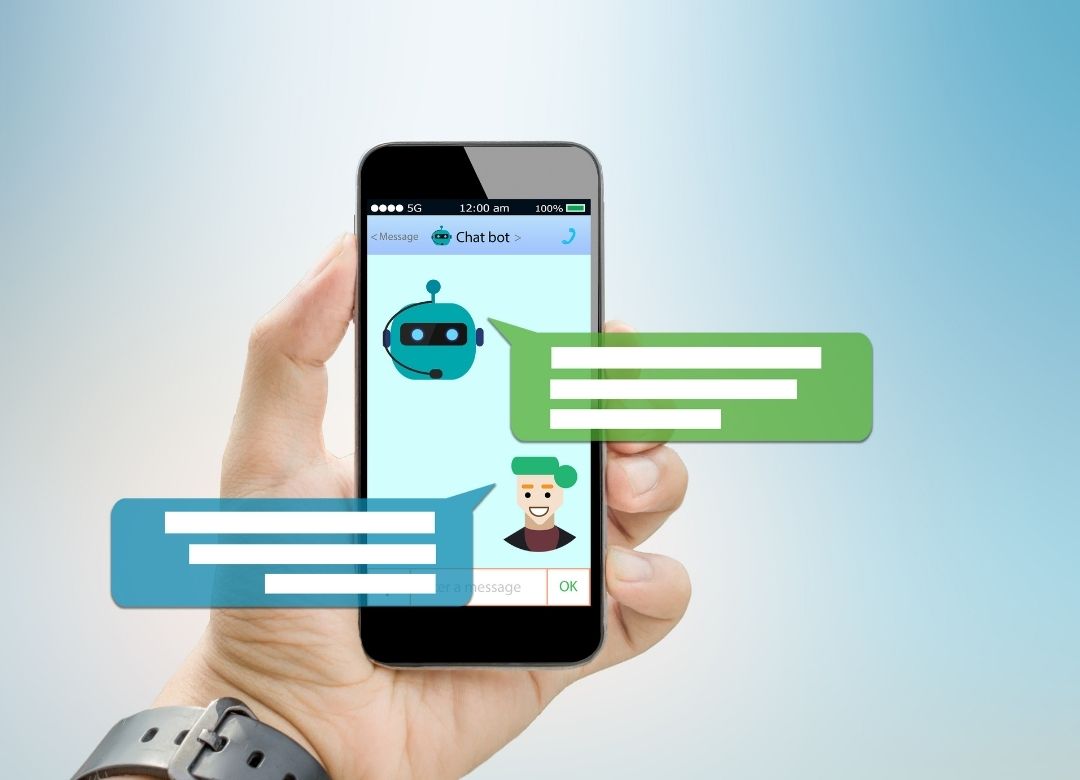In today’s rapidly evolving digital landscapes, companies are under great pressure to provide fast, smarter, and more personal interactions with both customers and employees. Traditional manual procedures that once dominated Customer Relationship Management (CRM) and Human Resources (HR) are no longer enough to meet modern requirements. The emergence of artificial intelligence (AI), especially AI-operated chatbots, changes these important areas, which helps operate businesses, reduce costs, and promote satisfaction in the board.
This blog dives deep into the transition from manual to intelligent, automated CRM and HR solutions, shedding light on how AI chatbots are revolutionizing workflows and why embracing these technologies is critical for future-ready organizations.
The Evolution of CRM and HR: From Manual to Automated
Manual Processes: The Traditional Approach
Historically, CRM and HR relied heavily on manual labor – data entry, phone support, email, and physical paperwork were ideal. Customer support teams were inundated by the repetition of the same questions, which often led to slow response times and inconsistent service. Similarly, human resource departments spent countless hours sorting CVs, managing the paperwork onboarding, and handling the requests to employees through phone or e -email. This manual approach was not only time-consuming but also suffered from errors and disabilities that hindered development. This is where the HR Chatbot software began to receive traction, providing a smart option for manual procedures by automating ordinary employees’ interactions and reducing the HR team’s load.
Early Automation: Rule-Based Systems
The first wave of automation introduced rule-based chatbots and workflow automation tools. While these technologies alleviated some burdens by handling basic queries or automating routine tasks, they lacked flexibility and intelligence. These early chatbots work in preset commands and struggle with an understanding of natural language, often disappointing users who expect more cyclical and adaptive support. HR Chatbot software acts as a virtual assistant to employees, immediately answering general HR-related questions without human intervention.
How AI is Revolutionizing CRM with Smart Chatbots
Enhanced Customer Interaction with NLP
AI Chatbots are run by natural language processing technology today, which allows them to accurately decode and understand the customer’s input. Instead of just matching keywords, they capture the subtle meaning behind the words, offering conversations that feel more conjunction and conversational. This capacity leads to a rapid solution of customer problems, personal product recommendations whenever needed.
Predictive Analytics Driving Proactive Support
One of the game-changing AI brings to CRM the predictive analytics. By analyzing historical customer data and behavioral patterns, AI Chatbots can anticipate the needs of customers before they arise. For example, if a customer often contacts a particular product problem, Chatbot can proactively suggest solving problems or offer discounts to improve satisfaction and retention.
Omnichannel Support for Consistency
AI-operated CRM chatbots are originally integrated on many platforms and from mobile apps to social media channels and messaging apps on many platforms. This omni-channel expression ensures a constant customer experience regardless of the communication channel. Customers can start a conversation on one platform and continue on the other without losing context.
Real-World Impact: Case Studies
The brands such as Sephora and H&M use AI chatbots as part of their CRM strategies. Its Chatbot offers make up tips and customized product advice, which promotes deep customer commitment. H&MS Chatbot provides personal shopping help, increases sales and customers loyalty.
The Growing Role of AI Chatbots in Human Resources
Revolutionizing Recruitment with AI Screening
Recruitment is one of the most resource-intensive HR functions. AI Chatbots helped automate the candidate screening through parsing, skills matching, and preliminary interview planning. This reduces the charge for the HR team, so that recruiters can focus on the interview by the most promising candidates instead of sifting through the large search pool.
Seamless Onboarding and Training Support
There is often a range of questions during onboarding new job. AI Chatbot 24/7 works as a virtual assistant and guides employees through paperwork, training programs, and the company’s guidelines. For information, this rapid access speeds up onboarding, improves new employee experience, and continuously reduces the need for HR intervention.
Continuous Employee Support and Engagement
Beyond hiring, AI-Chatbots help maintain connection by addressing daily HR issues related to the benefits, leave balance, salary, and performance evaluation. They provide individual reactions and reminders to comply with the time limit or training, and promote a more busy and informed working group. Modern HR chatbot software uses AI to deliver real-time assistance to employees, improving engagement and operational efficiency.
Compliance and Data Management Made Simple
Working with labor laws can be difficult, certification requirements and internal guidelines. The AI systems generate automatic tracking reports and ensure that the organization is audit ready without manual monitoring. In addition, AI administers the data safely sensitive employees reduce the risk associated with data violations.
Key Benefits of Adopting AI in CRM and HR
- 24/7 Availability: AI Chatbot never sleeps and provides continuous help that improves accountability and customer/employee satisfaction.
- Cost Reduction: Automation of repeated tasks reduces the requirement for large support teams, there are significantly reducing operating costs.
- Scalability: AI systems easily handle the increased load in the extreme period without compromising the quality of the service.
- Improved Accuracy: Reducing human errors in data collection and processing improves general efficiency.
- Personalization: AI improves interaction, user experience, and loyalty to individual preferences.
- Data Security: AI platforms include advanced encryption and compliance facilities, security for sensitive information.
- Faster Decision Making: Real-time analyses strengthen leaders with action-rich insights on strategic decisions.
Challenges and Considerations When Implementing AI Chatbots
Technical Integration and Data Silos
Integrating AI chatbots with existing CRM and HR management systems can be complex. Data silos and incompatible platforms may hinder smooth communication and reduce the effectiveness of AI implementations. Careful planning, choosing scalable AI solutions, and leveraging APIs can mitigate these issues.
Balancing Automation with Human Interaction
While AI excels at handling routine tasks, it lacks human empathy and critical thinking. It’s vital to design chatbot systems that seamlessly escalate complex issues to human agents. For example, a chatbot might help an employee fill out a form or find a CV maker, but a human HR representative is better suited to discuss career development options.
Privacy, Ethics, and Transparency
AI systems handle sensitive personal information, making privacy a top concern. Organizations should follow rules such as GDPR and ensure transparent data usage guidelines. Including bias mitigation, Ethical AI practices, and impartialness is important to maintain trust.
The Future Outlook: AI’s Expanding Role in Business Operations
When AI technologies mature, CRM and HR chatbots’ abilities will continue to expand. Innovation, like emotion recognition, will enable chatbots to detect the user’s sentiment and adjust their reactions accordingly. Voice-active assistants will be more widespread and offer free support at hand. In addition, the AI-driven future models will further strengthen the decision by predicting market trends and workforce needs.
Businesses that invest in AI chatbots today position themselves for a future where automation and human intelligence work hand in hand to create exceptional customer and employee experiences.
Conclusion
Changes from manual to smart AI-driven CRM and HR Chatbot software mark a significant change in business operations. AI gives organizations the right to streamline processes, provide personalized support, and benefit from data for strategic development. While challenges remain, benefits outweigh the hurdles, such as AI integration must be for companies to remain competitive in the digital age.
By embracing AI-Chatbots, companies not only increase efficiency, but also promote deep relationships with customers and employees, one smart, more responsible, and pave the way for the initiative prepared for the future.

Sandeep Kumar is the Founder & CEO of Aitude, a leading AI tools, research, and tutorial platform dedicated to empowering learners, researchers, and innovators. Under his leadership, Aitude has become a go-to resource for those seeking the latest in artificial intelligence, machine learning, computer vision, and development strategies.


